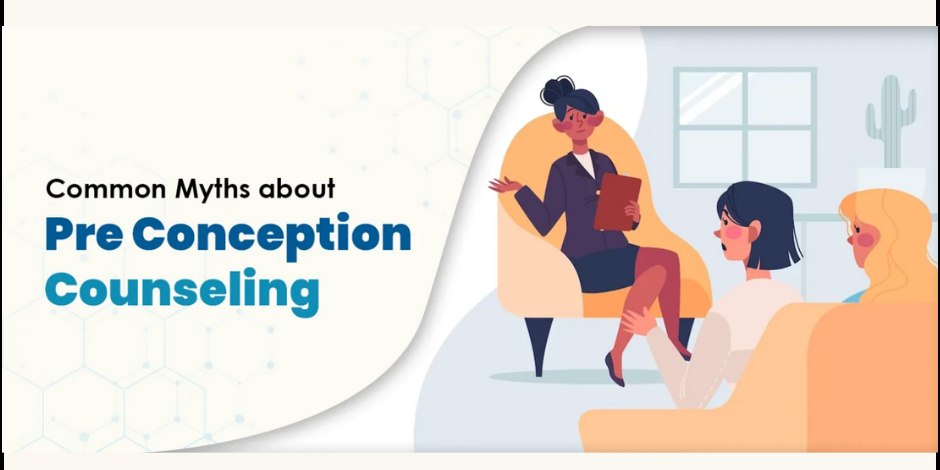Common Myths about Preconception Counseling
Preconception counselling is a type of healthcare service that helps couples prepare for a healthy pregnancy and baby. It involves discussing medical and lifestyle factors that can affect fertility and the health of the baby, as well as recommendations for prenatal testing and other interventions.
Despite its benefits, preconception counselling is often misunderstood and surrounded by myths. Here are some of the most common myths about preconception counselling, debunked:
Myth 1: Preconception counselling is only for women.
Fact: While women may be the primary focus of preconception counselling, it’s important to involve both partners in the process. Men can also play a role in ensuring a healthy pregnancy and baby, as certain lifestyle factors and health conditions can affect fertility and the health of the baby.
Myth 2: Preconception counselling is only necessary if you have known fertility problems.
Fact: Even if you have no known fertility problems, preconception counselling can help identify and address any potential risks or health concerns before getting pregnant. This can include reviewing medical history, discussing lifestyle factors that can affect fertility and the health of the baby, and recommending prenatal testing or other interventions.
Myth 3: Preconception counselling is only for couples planning a pregnancy.
Fact: Preconception counselling can benefit anyone who wants to have a healthy pregnancy and baby, whether they are planning a pregnancy or not. It can help identify and address potential risks or health concerns, and it can provide recommendations for lifestyle changes that can improve overall health and well-being.
Myth 4: Preconception counselling is expensive and time-consuming.
Fact: Preconception counselling can be affordable and convenient, depending on the healthcare provider and location. It may be covered by insurance or offered as part of routine healthcare services. The duration of preconception counselling sessions can also vary, depending on the specific needs and concerns of the couple.
Myth 5: Preconception counselling is not necessary if you’ve had a healthy pregnancy before.
Fact: Even if you’ve had a healthy pregnancy before, it’s important to seek preconception counselling before trying to conceive again. Each pregnancy is unique, and there may be new factors or risks to consider. Preconception counselling can help ensure a healthy pregnancy and baby, regardless of past experiences.
Preconception counselling can be a valuable tool for couples who want to have a healthy pregnancy and baby. By addressing potential risks and health concerns before getting pregnant, preconception counselling can help ensure a smooth and successful pregnancy journey. Don’t let these common myths prevent you from seeking the care and support you need to start your family on the right foot.







